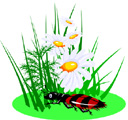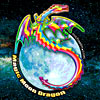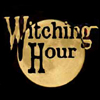Daisy is a plant and an herb.
- botanical information
- history
- astrological correspondences
- magick correspondences and uses
- Goddesses and deities
- cautions and contraindications
botanical information:
Botanical name: Bellis perennis
Common name: daisy
Use the botanical name when ordering seeds (bulbs, etc.) or when looking up information in the library. Common names vary by nation, culture, and region, and sometimes the same common name is applied to different plants.
history:
History: Daisies were commonly grown in ancient Egyptian temple gardens.
astrological correspondences:
Astrological planet: Sun and Venus ![]()
![]()
magickal correspondences and uses:
Month: Daisy is associated with April.
Gender: feminine (traditional western European magickal gender)
Western element: water and fire
Magickal uses: future telling, simplicity, youth
Potpourri: Use daisy flower petals in magickal potpourris for spells regarding: humor, survival
Solar spells: See the article on the Sun for a list of herbal substitutes for daisy in solar spells.
Venus spells: Daisy (as an herb) may be used in as an ingredient or substitute for magick spells and formulas related to Venus matters (beauty, compassion, fidelity, friendship, happiness, interchanges, joy, love, luck, meditation, pleasure, reconciliation, and youth). Be careful about substitutions for preparations that will be ingested or come in contact with the skin. These substitutions do not apply to medical uses. See the article on Venus for a list of herbal substitutes for daisy.
Love spells: Daisy flowers are appropriate for use in love spells, such as the Aphrodite New Moon love spell.
Magickal substitutions: Rosemary usually may be safely substituted for any herb in magick spells and rituals. Roses may safely be substituted for any flower.

Magical Uses information courtesy of 
|
deities associated with daisy:
cautions and contraindications:
Non-toxic to animals: The American Society for the Prevention of Cruelty to Animals (ASPCA) Animal Poison Control Center has determined that blue daisy, blue-eyed daisy, and Easter daisy “have not been reported as having systemic effects on animals or as having intense effects on the gastrointestinal tract.” —ASPCA

Some herbs may be poisonious under some conditions. Exercise appropriate care.
Wild gathering: Avoid wild gathering. Some plants are endangered species. Some plants can be toxic just by touch. Even experts can make deadly misidentifications of wild plants. Please grow your own herbs in your own goddess garden (or window boxes).
See also: ox-eye daisy and herbs














